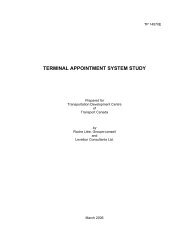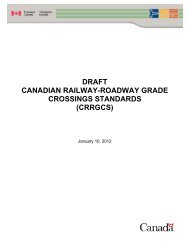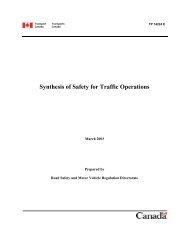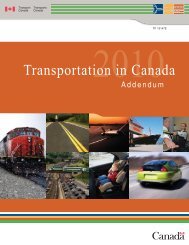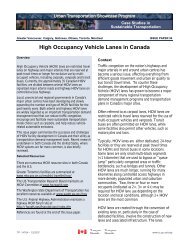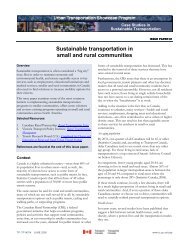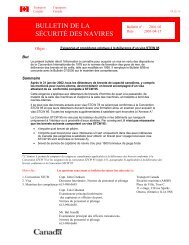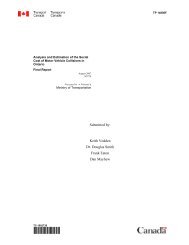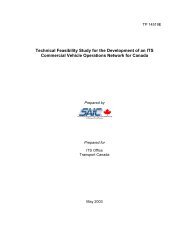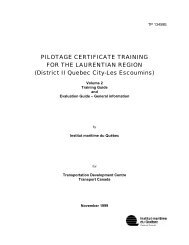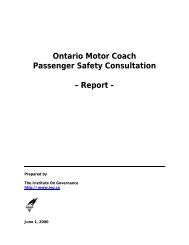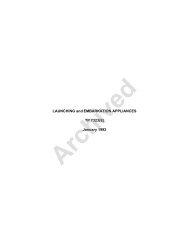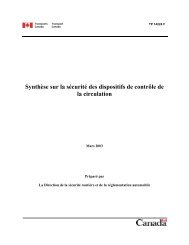APPROVED CHECK DISPATCHER MANUAL - Transport Canada
APPROVED CHECK DISPATCHER MANUAL - Transport Canada
APPROVED CHECK DISPATCHER MANUAL - Transport Canada
You also want an ePaper? Increase the reach of your titles
YUMPU automatically turns print PDFs into web optimized ePapers that Google loves.
<strong>APPROVED</strong> <strong>CHECK</strong> <strong>DISPATCHER</strong> <strong>MANUAL</strong> TP 14114<br />
9.4 EVALUATION ERRORS<br />
In order to test effectively, the ACd requires not only a sound knowledge of the characteristics<br />
of evaluation, but also a firm understanding of the possible errors that can occur throughout the<br />
evaluation process. Errors in evaluation fall into several categories.<br />
9.4.1 Personal Bias Error<br />
Personal bias is indicated by a tendency of an ACd to rate candidates or a particular group of<br />
candidates the same.<br />
9.4.2 Central Tendency Errors<br />
Central tendency errors are indicated by a tendency to rate all or most candidates as average.<br />
The ACd feels that the performance of most candidates is not as good as it should be and<br />
therefore underscores a candidate’s good performance. On the other hand, the ACd is reluctant<br />
to cope with the possible emotional response of a candidate. It results in padded or inflated<br />
assessments of poor performance. This error may also occur because an ACd does not want to<br />
put effort into making a decision. An average mark is easier to make.<br />
9.4.3 Generosity Errors<br />
Generosity errors are indicated by a tendency to rate all individuals at the high end of the scale<br />
and are probably the most common type of personal bias. This could be caused by an ACd’s<br />
desire to be known as a nice person.<br />
9.4.4 Severity Errors<br />
In this case, all or most candidates are graded at the low end of the marking scale. The ACd<br />
may feel that the published standards are too low and score the test against their own set of<br />
standards. This type of ACd feels that few people can do as well as they can.<br />
9.4.5 Halo Effect<br />
This occurs when an ACD’s impression of a candidate is allowed to influence the assessment<br />
of performance. Halo error can result in rating an applicant too high or too low. One form of halo<br />
error is the error of leniency. Leniency has its source in an examiners likes, dislikes, opinions,<br />
prejudices, moods and political or community influence of people. For example, when testing a<br />
friend, acquaintance, or high profile individual, an ACD may give undeservedly high marks or,<br />
conversely the error of stereotype.<br />
november 2011 - 2 nd Edition Page 33



